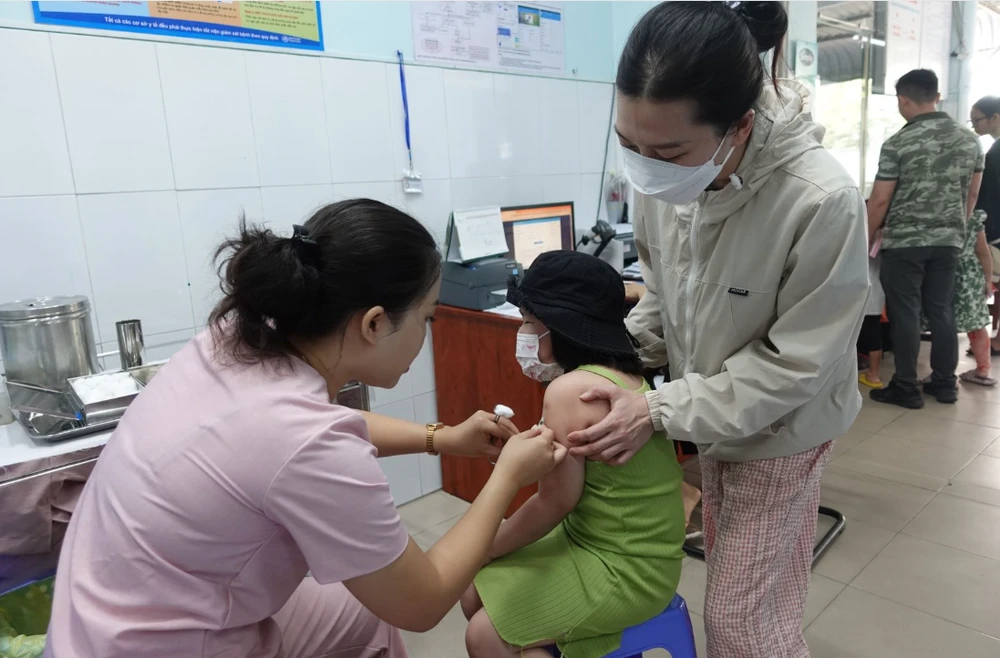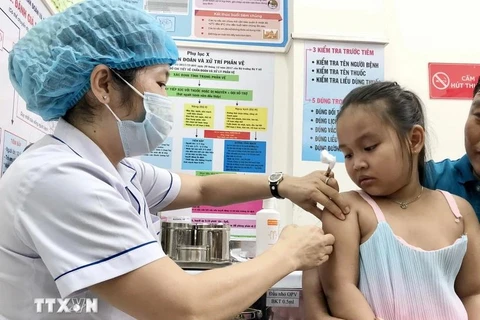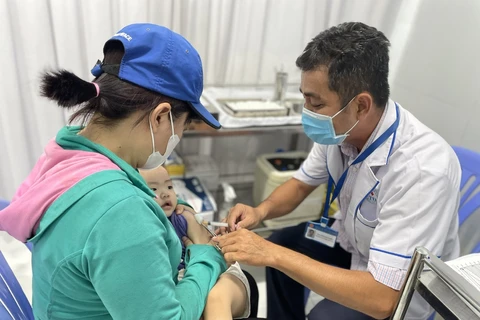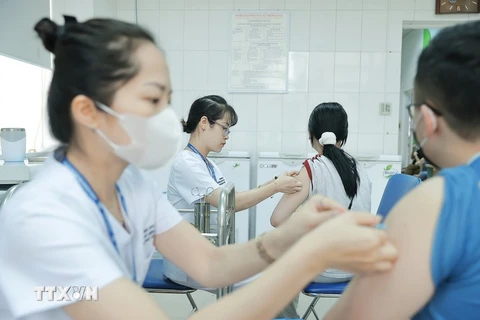
Hanoi (VNA) – The Expanded Programme on Immunisation (EPI) is considered one of the most successful public healthcare and protection programmes in Vietnam.
Over the past 40 years, hundreds of millions of doses of vaccines have been given free of charge to Vietnamese women and children, significantly contributing to reducing infant and maternal mortality.
Since Vietnam introduced the EPI – the national immunisation programme in 1981, millions of children have been protected from vaccine-preventable diseases including polio, measles, tetanus, and diphtheria.
The programme is implemented synchronously in all provinces and cities, ensuring that all people, especially children, have opportunities to access quality health services based on the provision of free vaccines.
It provides vaccines against 11 infectious diseases including tuberculosis, diphtheria, whooping cough, tetanus, measles, polio, hepatitis B, pneumonia/meningitis caused by Hib, Japanese encephalitis B, Rubella, and Rota.
Over the past 40 years, the programme has contributing to the eradication of polio in 2000, neonatal tetanus in 2005, and a significant reduction in the rate of infectious diseases.
Despite remarkable results, vaccination work in Vietnam still faces many challenges as infectious diseases in the world remain unpredictable and the recent COVID-19 pandemic has greatly affected vaccination rates.
In addition, environmental pollution, climate change, natural disasters, floods, and urbanisation create favourable conditions for infectious diseases to reappear, spread, and break out. At this time when students nationwide have entered a new school year, the risk of studenst contracting infectious diseases increases, especially those transmitted through the respiratory tract.
Dr. Angela Pratt, Chief Representative of the World Health Organisation (WHO) in Vietnam, said that since 2021, hundreds of thousands of children in Vietnam have not been vaccinated due to the COVID-19 pandemic and a shortage in vaccine supply.
As a result, the vaccination rate among children has dropped sharply, unprecedented in more than 20 years. This has led to an increase in the number of cases of vaccine-preventable diseases such as diphtheria and whooping cough, along with concerns about the risk of widespread measles outbreaks.
According to the Department of Preventive Medicine under the Ministry of Health, in the last few months, measles have broken out strongly in many provinces and cities with more than 2,000 cases and deaths.
Ho Chi Minh City has reported more than 600 measles cases and three deaths, more than 8 times higher than that of the same period last year. From late 2023 to early 2024, the Ministry of Health organised vaccinations for those who had not been fully vaccinated against 11 infectious diseases in the programme.
On the eve of the new school year, the ministry launched a vaccination week and issued a measles vaccination campaign for 2024, with children aged from 1 to 10 to be vaccinated instead of only children aged 9-18 months.
Director of the Department of Preventive Medicine Hoang Minh Duc said that 18 provinces and cities with more than 100 districts at risk will be vaccinated in this first phase of the campaign.
All totalled, more than 1 million doses of vaccines administered in this campaign are free of charge. The ministry will strengthen coordination with the Ministry of Education and Training in reviewing and making a list of preschool children and students to get vaccinated. Meanwhile, localities are urged to promote communications about the importance of vaccinations.
To maintain the achievements of the vaccinations, the health ministry recommends that authorities at all levels, departments and organisations need to monitor the innoculation programs closely, ensuring sufficient funding is in place.
The National Assembly Standing Committee has also agreed to allocate a supplementary budget of more than 424.5 billion VND to purchase 11 types of vaccines in 2024 and reserves in the first 6 months of 2025.
According to Resolution 104/NQ-CP of the Government, four important vaccines will be included in the programme in the 2021-2030 period. Specifically, the Rotavirus vaccine and Pneumococcal vaccine (PCV) will be piloted in five provinces and cities in 2025 and expanded nationwide in 2030.
The cervical cancer vaccine (HPV) will be administered by 2026 for girls aged 11, and the Influenza vaccine from 2030 in 20 provinces and cities.
The four vaccines added in the programme will help increase vaccination rates and protect the health of people, especially women and children./.






















